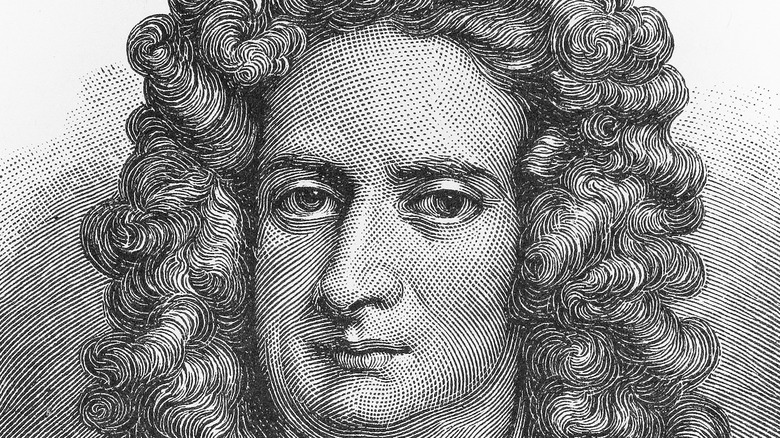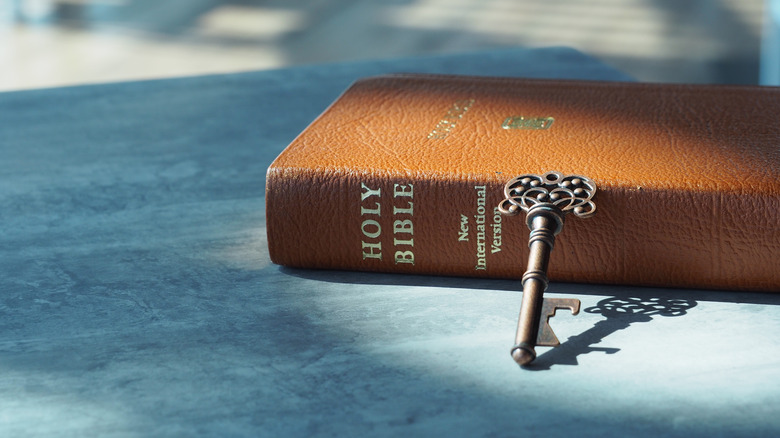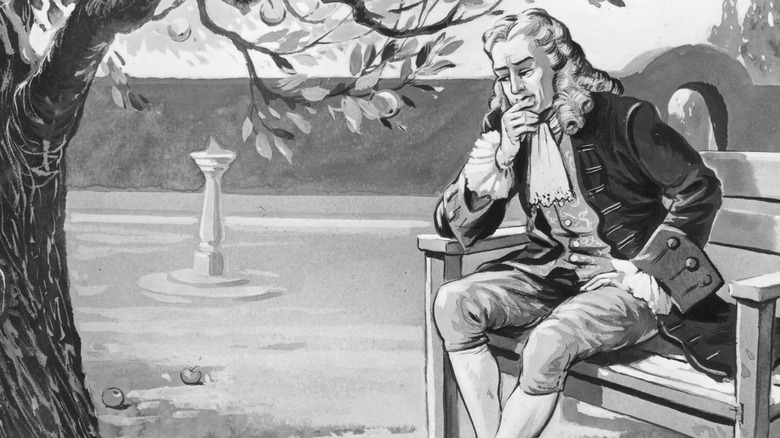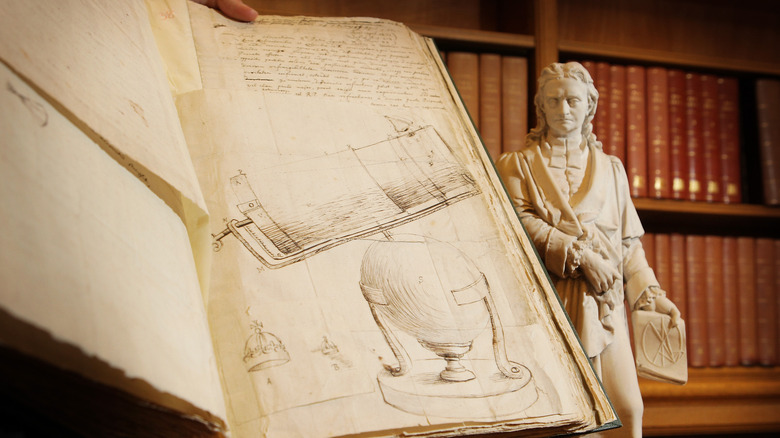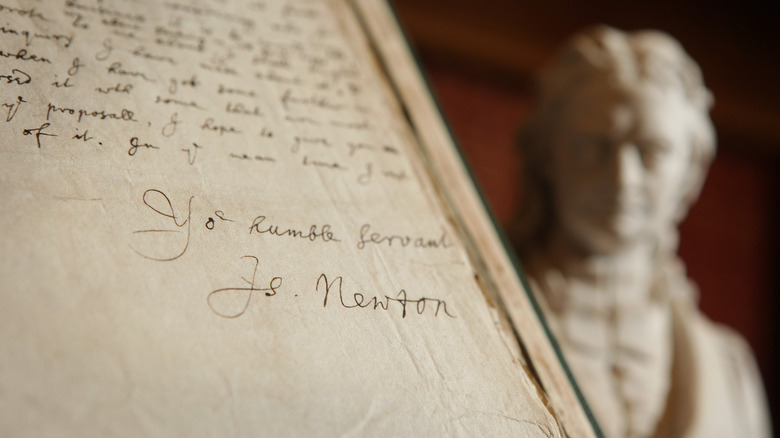This Is How Isaac Newton Predicted The End Of The World
Isaac Newton is regarded as nothing more or less than one of the finest scientific minds in human history. Per Britannica, his pioneering work in physics, including the three laws of motion and his comprehension of the awesome force of gravity, laid the foundations for the field itself.
His brilliance, however, seemed to come at the cost of his modesty. The Newton Project reports that, though he was pronounced a genius and lavished with accolades and a fortune during his lifetime, he lacked confidence. Disputes and rivalries (such as with Gottfried Leibniz, eminent German mathematician) plagued his life, perhaps in petty ways that men of their stature should have been above. Nevertheless, Newton's name carried an incredible cachet. When he spoke, the world listened.
Of course, his works are still held in such incredible regard today, which makes the discovery of old writings of his predicting the end of the world all the more troubling. Here's how long we have until time's up, according to a genius.
The Holy Bible held the answer, Newton believed
First and foremost a scientific powerhouse, a learned man of Newton's caliber was deeply immersed in other fields, too. Notably, he wrote at length on matters of religion. As reported by The Newton Project, he meticulously studied the Bible, writing in-depth treatises on subjects such as the history of Christianity and the nature of theology as well as the gods worshipped by the Ancient Greeks, Romans, and Egyptians.
Of particular interest to a ravenous and probing mind like his was the meaning of the Bible's Book of Revelation. Ancient Code suggests that the concept of an approaching apocalypse was something Newton grappled with. Could he break it down into something logical, something literal? Could he predict when the world would end by using the enigmatic words of the Bible as a guide? If anybody could, it was Newton. In one of his more obscure writings, it appears that he did just that. It doesn't look as though we have very long, either.
Sooner rather than later?
According to the Express, mysterious writings of Newton's were discovered in 1969, in the home of Britain's Earl of Portsmouth (a hereditary title, the bearers of which are related to Newton, per The New Atlantis). This treasure trove of assorted Newton scribblings contained one particularly alarming little doozy: Newton, supposedly, had calculated when the world would end.
How did he do this? Newton also wrote extensively on matters of religion, and in this particular letter written in 1704, he claimed to have determined the year the world would end by studying the Book of Daniel. According to the British brainiac, "the ruin of the wicked nations, the end of weeping and of all troubles" will take place in the year 2060.
"It may end later, but I see no reason for its ending sooner," he added, cryptically suggesting that there may be more time than that. He made this prediction to "put a stop to the rash conjectures of fanciful men who are frequently predicting the time of the end."
A difficult calculation
What did Newton read in the Book of Daniel that led him to this damning conclusion? According to Ancient Code, it was one specific passage: "Sware by him that liveth for ever that it shall be for a time, times, and a half; and when he shall have accomplished to scatter the power of the holy people, all these things shall be finished."
Those of us who aren't acclaimed geniuses may need some explanation of the conclusion Newton drew, which, it seems, revolves around the telling words "time, times, and a half." What Newton tried to do was determine a particular timescale for the apocalypse. For him, this wording suggested a period of 1,260 days (a number seemingly used elsewhere in the Bible), which he adapted to mean 1,260 years for his purposes. With that decided, he had another pressing question to answer: The world would end 1,260 years from when?
1,260 years come to an end (perhaps)
Newton wrote (per Ancient Code) that A.D. 800 (the year Charlemagne created the Holy Roman Empire) would be a perfect year to begin counting from. Using 1,260 years gives us an end date of, yes, 2060.
Ever the egotistical genius, though, Newton wasn't about to leave himself open to being proven wrong centuries after his death. Not only did he note that the end could come later, he also suggested that A.D. 800 may not have been the year that marked the beginning of the end after all. In short, the apocalypse might come about in the year 2060, or it might not. Either way, Isaac Newton wanted us to know that the great Isaac Newton certainly wasn't wrong about it.
The important thing to bear in mind is, several rash and/or fanciful predictions of the end of the world have come and gone since. Newton's fellow genius Stephen Hawking warned that the end may be nigh, too, so this is all more than a little troubling nonetheless.
